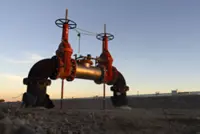PETALING JAYA: Direct access to customers will help solve the problem of farmers dumping excess produce, says a sustainable agriculture company executive.
Sunway XFarms chief operating officer Eleanor Choong said farmers find it hard to distribute their harvests when markets close during long holidays and demand slumps.





